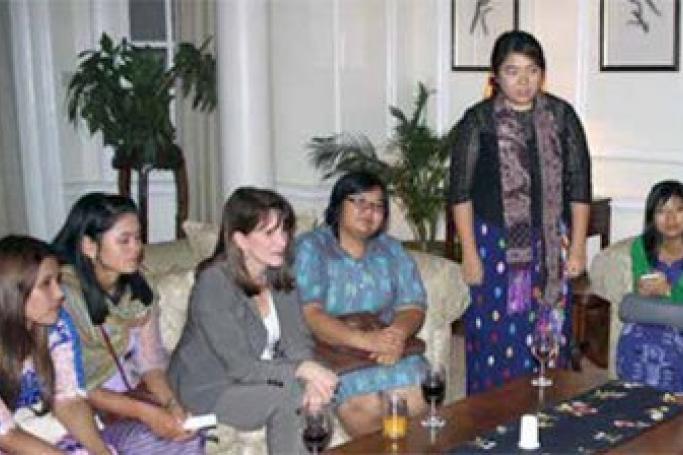British Home Office Minister Lynne Featherstone has been visiting Myanmar in her capacity as the UK’s champion for tackling violence against women and girls overseas. Mizzima Weekly’s Matt Roebuck spoke to Ms Featherstone about her visit.
You’ve spoken often about the under-representation of women in public life. How does this affect Myanmar?
Research has proven time and again the importance of women’s empowerment and women’s participation. For example, an inclusive, just and sustainable peace is more likely with women’s meaningful and sustained participation and leadership in peace processes, conflict prevention, peace-building and in the elections. More women, nationally and locally, should have their voices heard and addressed in the peace process and
political dialogue. Sadly this problem is not unique; it is a problem the world over. But there is a unique opportunity in Burma to do things right as the transition to democracy continues.
One of the reasons you gave for visiting Myanmar was to investigate the situation affecting women and girls from ethnic minority groups. What have you learned?
I heard first-hand about the discrimination and violence felt by women. This is often as a direct result of conflict which has caused widespread displacement, especially in Kachin and Rakhine states.
Against this bleak backdrop, there is, however, much to be hopeful and positive about. I know this because of the women I met during my visit. They have the passion, commitment and drive to improve the country for the better by advancing and protecting women and girl’s rights, by respecting tolerance and valuing diversity, upholding fundamental freedoms and the rule of law, and by treating all individuals with the inherent dignity they deserve.
Do you think the reform process is helping to improve the lives of women in Myanmar?
For women in Burma, the baseline is very low, but things have improved and I am certain they will continue to do so due to the tremendous energy and ability of gender and peace activists in civil society that I was fortunate to meet with during my visit.
What’s your opinion about the four so-called “protection of religion” draft laws?
If the draft laws are implemented in their current form without any amendment, I believe it would send a negative signal particularly for women but also religious and other minority groups in the country.
I raised our concerns with Deputy Foreign Minister U Thant Kyaw and Minister of the President’s Office U Soe Thane during my visit. EU ambassadors, including the UK, issued a statement locally on January 12 calling on the Burmese government and parliament to ensure that all new legislation is fully compliant with Burma’s international human rights obligations. The current drafts contravene international standards and treaties to which Burma is a signatory.
What needs to be done in Myanmar to tackle gender-based violence and discrimination?
One of the great positives in Burma over the last few years has been the opening of public space and media freedoms. The challenge now is to harness that space to start a national conversation, starting by raising awareness of the issue and developing solutions that are right for this country. I believe there is genuine political will at the top to address [this issue] and combined with strong advocacy from the grass roots, change will happen.
That said, I was in Burma the same time as UN special rapporteur Yanghee Lee, who has rightly commented that these positive gains are at risk at being lost. I was appalled to see the abusive language used against her by a prominent monk. This type of intimidation is something other human rights defenders in the country have sadly experienced far too many times. Such personal attacks should not be tolerated.
This Article first appeared in the February 12, 2015 edition of Mizzima Weekly.
Mizzima Weekly is available in print in Yangon through Innwa Bookstore and through online subscription at www.mzineplus.com
You are viewing the old site.
Please update your bookmark to https://eng.mizzima.com.
Mizzima Weekly Magazine Issue...
14 December 2023
New UK Burma sanctions welcome...
13 December 2023
Spring Revolution Daily News f...
13 December 2023
Spring Revolution Daily News f...
12 December 2023
Spring Revolution Daily News f...
11 December 2023
Spring Revolution Daily News f...
08 December 2023
Spring Revolution Daily News f...
07 December 2023
Diaspora journalists increasin...
07 December 2023
Naungcho to be transformed into tourist destination












